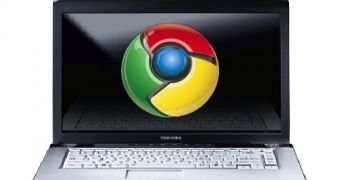While the exact date when Google will release its first self-branded netbook (or netbooks) is still unknown (although most industry signals seem to indicate that we're talking about late 2010, not early 2011), it would seem that we're not talking about a single platform, but two, undergoing tests as we speak, and having some rather peculiar code-names, namely “Mario” and “Andretti”. If you've been following our articles on this topic up until now, you should already know the fact that Google plans to release a self-branded Chrome OS netbook, whose main purpose will be to popularize this operating system. Of course, deals with various hardware manufacturers (Asus, Dell, HP, Acer, Toshiba, etc.) are also in place, so we can expect Chrome-running portable computing systems coming from this direction as well. Anyway, as TechCrunch reports, after checking out information pertaining to various bug reports, it would seem that Google's currently testing internally two different hardware platforms, apparently codenamed “Mario” and “Andretti”. Why Mario Andretti? Well, the answer is quite simple, because he's one of the fastest drivers of all time, and because lighting-fast cars and high-speeds are the first thing that comes to mind when coming across this name (and that was probably the case with Google's engineers as well). Of course, the search engine giant has also spent plenty of time testing compliant machines coming from their hardware manufacturing partner, but apparently they're now focusing on these two models, as the estimated date of release of Chrome OS gets nearer and nearer. That's pretty much all the info available on this topic for the time being, and we're quite eagerly looking forward to seeing which of the two platforms will ultimately make it onto the market, and what they'll have in store for users. Either way, one thing's clear: either one who makes it will be very, very fast, providing an experience that, to some, might feel superior to just about everything the market currently provides.
hot right now

 14 DAY TRIAL //
14 DAY TRIAL //